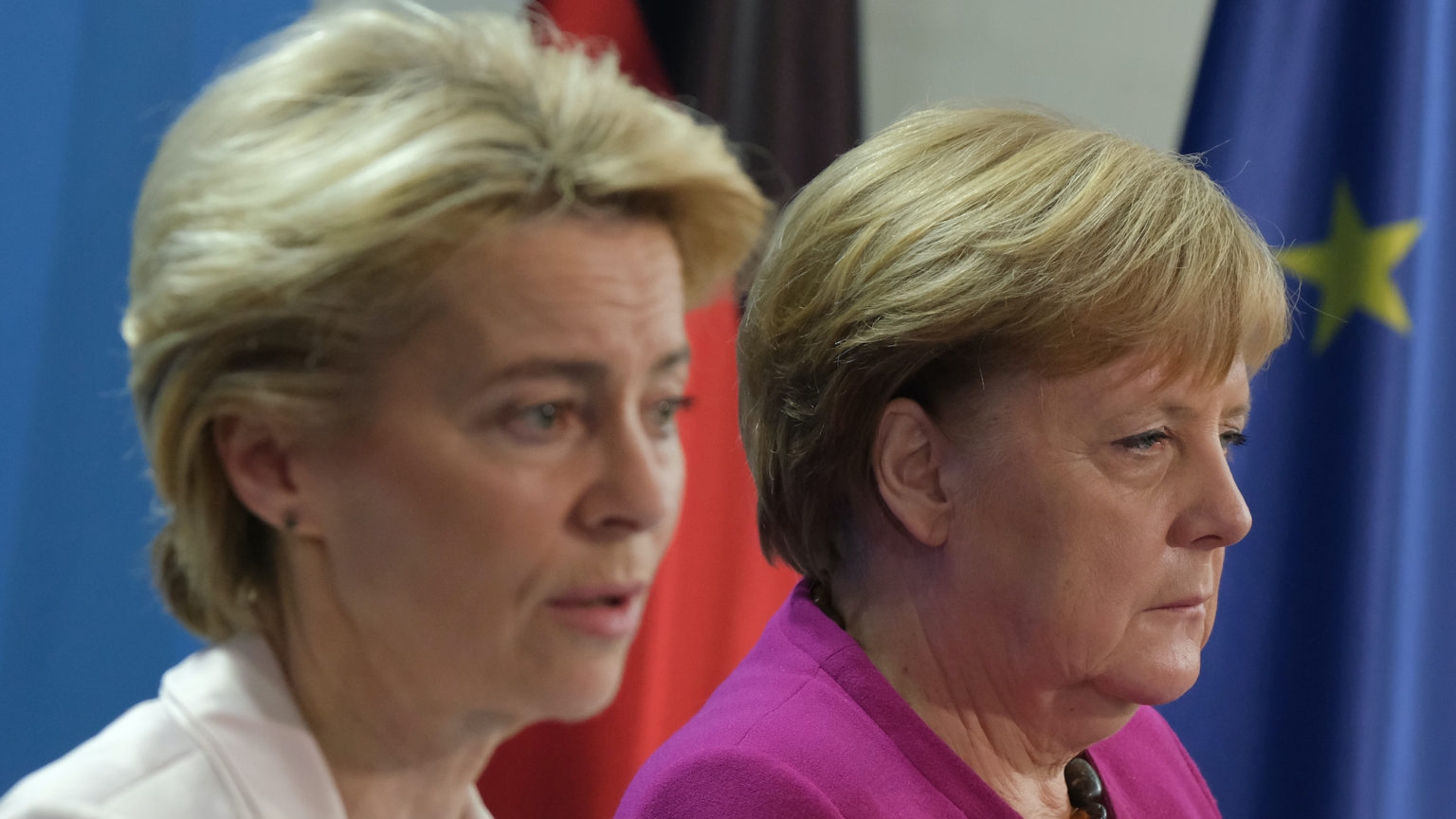Finally, Germany is talking about ‘Dexit’
The AfD has taken its most Eurosceptic line yet. That’s good news for democracy.

Could the AfD (Alternative für Deutschland) be about to make history? Before the AfD’s party conference had even ended last Sunday, the term ‘Dexit’ – short for a German exit from the EU – was circulating in the press. The reason is the AfD’s programme for September’s elections: ‘We consider a withdrawal of Germany from the European Union and the establishment of a new European Economic and Interest Community necessary’, it says – a demand which has caused more than a little stir.
This is the furthest the AfD has ever gone in its opposition to the EU. Of course, its programme has other demands, but it is in the Dexit policy that many commentators see proof of an increasing influence of the far-right within the party’s ranks. The AfD is now ‘openly radical’, said Der Spiegel. Deutschlandfunk, Germany’s state radio station, reminded its listeners that before the 2019 European elections, AfD delegates had still been willing to follow the leadership’s milder Euroscepticism, only calling for Germany to leave the Euro.
Pro-EU commentators in Germany have long tried to dismiss any EU scepticism as right-wing extremism – the fact that the AfD is now campaigning for Dexit seems to confirm their point. But most are also anxiously asking themselves how many voters the AfD might win over with its new anti-EU programme. Time and again, the AfD has demonstrated a good sense of the mood in large parts of the population. And even though pundits like to pretend that party delegates were manipulated by the right-wing Björn Höcke (the leader of the notorious Flügel wing of the party), they know this is wrong.
The real reason the AfD has embraced Dexit, after long debates at the party congress, is simply that delegates believe it can help the party reach more voters. Dexit has given the AfD an important and unique selling point for the upcoming elections.
The EU is more unpopular in Germany than ever – and it isn’t just the AfD that knows it. There are many reasons: Ursula von der Leyen’s undemocratic appointment as EC president, the unresolved refugee crisis, the coronavirus vaccination disaster, and the way in which the Next Generation EU Recovery Fund is being waved through parliaments, despite its risks and uncertainties (a lawsuit against it is currently pending before the German constitutional court).
Only the most arrogant or naive Europhile could expect the electorate not to notice any of this. And it would be absurd to believe that no party would try to capitalise on voters’ rising sense of frustration. And since the Left Party (Die Linke) abandoned Euroscepticism several years ago, the field has been left to the AfD.
So is it good or bad that the AfD is calling for Dexit? Of course it would be good if others, perhaps even some new parties, could develop a serious critique of the EU and offer an alternative to German voters. But it is good that Dexit has at least been brought into the election campaign. The very possibility of a critical debate emerging will put pressure on our already defensive establishment to find better arguments for the EU than ‘it’s a nice idea’ or ‘it’s good for our exports’.
Of course, only the election itself will show how successful the AfD’s campaign will be – but the party might find that it is pushing against an open door.
Sabine Beppler-Spahl’s Brexit – Demokratischer Aufbruch in Großbritannien is out now.
Picture by: Getty.
To enquire about republishing spiked’s content, a right to reply or to request a correction, please contact the managing editor, Viv Regan.











Comments
Want to join the conversation?
Only spiked supporters and patrons, who donate regularly to us, can comment on our articles.